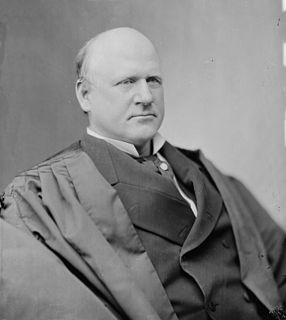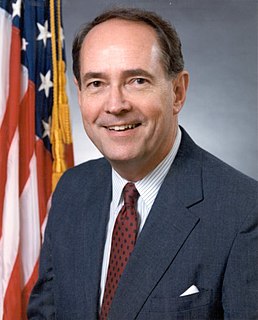A Quote by Glenn Greenwald
Revealingly, the central function of the Constitution as law--the supreme law--was to impose limitations not on the behavior of ordinary citizens but on the federal government. The government, and those who ran it, were not placed outside the law, but expressly targeted by it. Indeed, the Bill of Rights is little more than a description of the lines that the most powerful political officials are barred from crossing, even if they have the power to do so and even when the majority of citizens might wish them to do so.
Quote Topics
Behavior
Bill
Bill Of Rights
Central
Citizens
Constitution
Crossing
Description
Even
Federal
Federal Government
Function
Government
Impose
Indeed
Law
Limitations
Lines
Little
Majority
Might
More
Most
Most Powerful
Officials
Ordinary
Ordinary Citizens
Outside
Placed
Political
Power
Powerful
Ran
Rights
Supreme
Targeted
Than
Them
Those
Were
Wish
Related Quotes
The commitment to international agreements is embodied, it's found in the U.S. Constitution. Article Six of the U.S. Constitution provides that treaties of the United States are part of the supreme law of the land along with the constitution itself and laws passed by Congress. Well, the US government certainly has not been acting in recent years as if treaties were part of the supreme law of the land.
Under the constitution, there was never meant to be a federal police force. Even an FBI limited only to investigations was not accepted until this century. Yet today, fueled by the federal government's misdirected war on drugs, radical environmentalism, and the aggressive behavior of the nanny state, we have witnessed the massive buildup of a virtual army of armed regulators prowling the States where they have no legal authority. The sacrifice of individual responsibility and the concept of local government by the majority of American citizens has permitted the army of bureaucrats to thrive.
The important distinction so well understood in America between a constitution established by the people, and unalterable by the government; and a law established by the government, and alterable by the government, seems to have been little understood and less observed in any other country. Wherever the supreme power of legislation has resided, has been supposed to reside also, a full power to change the form of government.
As a citizen of Ireland I have more sovereignty over our government. Because citizens now have more ways of holding the Irish government to account, not just under Irish constitutional law, but under the European system, at Strasbourg and Brussels. This, I believe, is the benefit for individual citizens.
In fact, if law were restricted to protecting all persons, all liberties, and all properties; if law were nothing more than the organized combination of the individual's right to self-defense; if law were the obstacle, the check, the punisher of all oppression and plunder - is it likely that we citizens would then argue much about the extent of the franchise?































